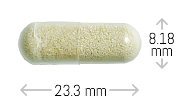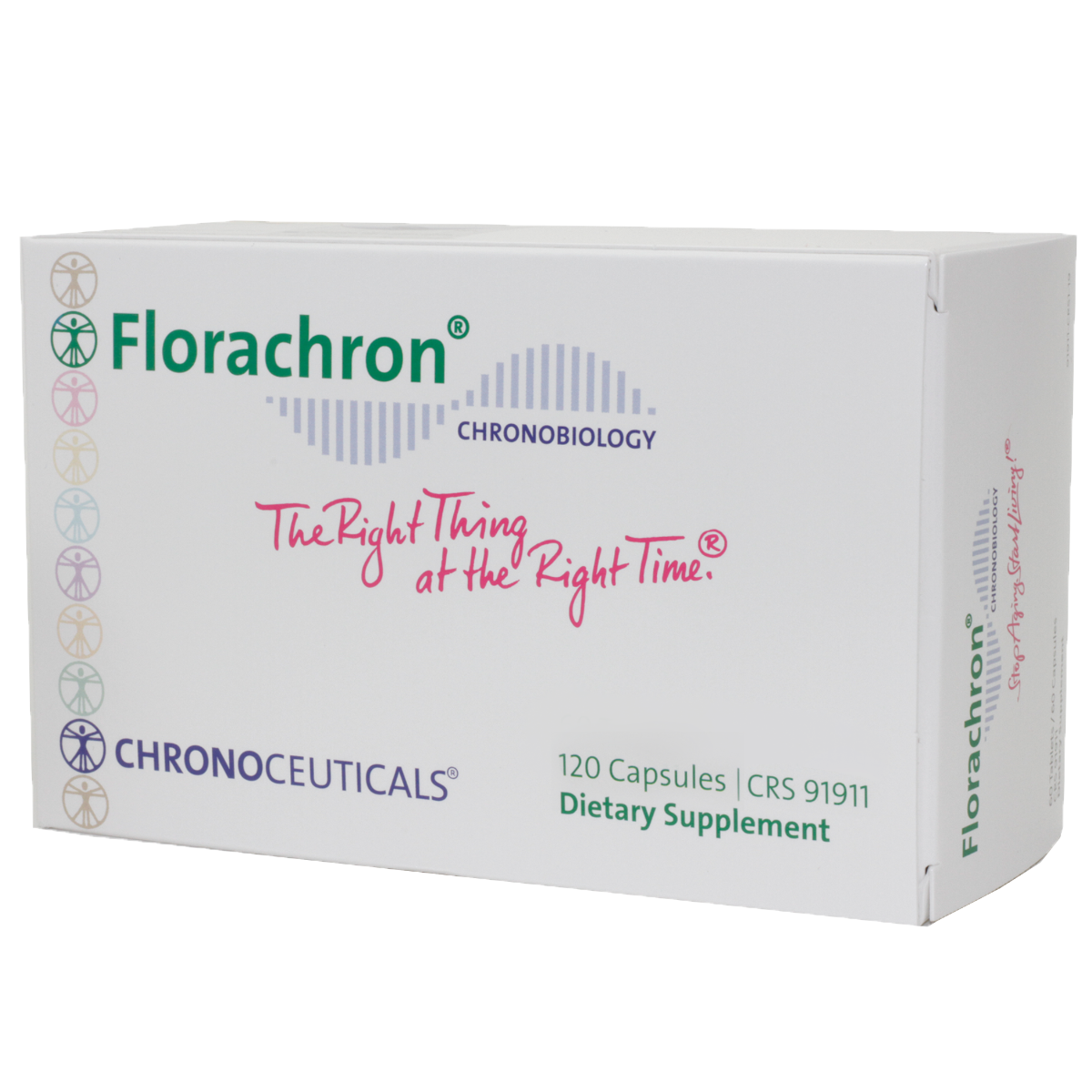Basics
The digestive ecosystem hosts 400 to 500 different types of bacteria. In a healthy small and large intestine, bacteria with beneficial properties dominate over illness-causing germs. These “friendly” microorganisms preserve the body’s healthy immune defense, assist in the uptake of nutrients and facilitate the elimination of undigested food particles. In millions of people today, the condition of this first and most important barrier against pathogens and toxins is seriously impaired by three factors: inappropriate antibiotic treatment, an unbalanced diet, and inflammatory bowel concerns.
“Death begins in the bowels” is a famous and wise saying attributed to early history’s most prominent physician, Hippocrates of Kos. Today, modern medical research proves him right. Nearly all diseases of affluence, so called “lifestyle diseases”, are related to impaired digestion and a deficient uptake of nutrients. The food we eat introduces pathogens and other harmful substances into our digestive systems. Ideally, they are eliminated while proteins, fats, carbohydrates as well as vitamins, minerals and secondary plant constituents are absorbed by the body. The intestinal mucosa also produces immune cells, which are distributed to all parts of our body through the lymphatic channels, thus strengthening our immune system. Restoring the natural bacterial balance after antibiotic therapy, which kills off both friendly and harmful bacteria, replenishing intestinal flora after infectious or inflammatory conditions, and the maintenance of a healthy intestinal flora are prime areas of application for chronobiology.
The Florachron™ regimen consists of two steps in accordance with the body's daily rhythm: healthy, living bacteria (probiotics) are provided to normalize the bacterial flora in the gut. In addition, fibrous substances which are unable to be digested by the human digestive system (prebiotics) are added to provide a perfect internal environment for the probiotics, assuring that the “friendly” bacteria adhere to the intestinal wall and encounter optimal conditions in the digestive tract.
Florachron™ is a chronobiological preparation designed to provide the optimal ingredients for digestive health at the correct time of day. A capsule containing a probiotic complex of approximately 26 billion live cells along with a small amount of prebiotic substances, is administered in the morning. This probiotic capsule has been specially-developed to ensure that a sufficient amount of probiotic bacteria survive the passage through the stomach, ultimately reaching the lower portions of the digestive tract. The evening capsule contains a much higher quantity of prebiotics, which help the probiotic bacteria accumulate effectively inside the digestive tract, while also preparing the intestinal wall for the next load of prebiotics.
Effects
Probiotics
While food is being digested, lactobacillus acidophilus forms several substances (e.g. lactic acid) which create an unfavorable environment for undesirable microorganisms. By producing niacin, folic acid and pyridoxine, lactobacillus also contributes to the formation of healthy intestinal flora. Lactic acid-producing bacteria help support a healthy immune system, promote healthy cell growth, and help maintain cholesterol levels already within normal ranges. It is, however, necessary that these friendly bacteria are administered in sufficient numbers so they can overcome the gastric acid barrier which builds up during the digestive process, thus reaching the bowels alive.
The probiotic lactobacillus plantarum – generally known to be present in fermented sauerkraut – converts oxygen into hydrogen peroxide. This is a powerful process that the immune system employs against many unhealthy microorganisms, and which serves to eliminate competing, unhealthy bacteria from the intestines.
Another integral constituent of the human digestive tract that’s indispensable for its continuous restoration is lactobacillus salivarius.
Lactobacillus rhamnosus is one of 52 beneficial bacteria that has proven particularly resistant to illness-causing bacteria and gastric acid. It is also able to easily adhere to the intestinal mucosa.
Bifidobacterium bifidum exerts its effects primarily in the large intestine, where it produces B vitamins and enhances the absorption of vitamins, calcium and other minerals, just like other symbiotic intestinal bacteria. The lactic acid and acetic acid produced by intestinal symbiotic bacteria improve the acidity in the intestinal tract and make it more resistant to pathogenic bacteria and molds. The conversion of nitrate (in vegetables) into nitrites, and subsequently into carcinogenic nitrosamines, is also inhibited.
Prebiotics
Tens of thousands of plants contain fructooligosaccharides (FOS), otherwise known as prebiotics. Particularly high concentrations of these fibers are found in rye, garlic, onions, bananas, burdock and honey. Because our digestive system lacks certain enzymes, FOS can’t be fully digested by humans, but are instead converted into short-chain fructo-oligosaccharides which adhere to the mucosa of the intestinal tract. In this way they provide a perfect breeding ground for “friendly” bacteria which are able to assimilate this sugar.
Most FOS are natural derivatives of inulin, a reserve carbohydrate that occurs in plants and is also referred to as alant starch. Inulin, particularly that derived from the Jerusalem artichoke ortopinambour, was much revered by the North American Indians for its health benefits. When inulin and its related substances accumulate in the intestines, their additional bacteriostatic properties also assist in restoring healthy intestinal flora. Inulin also swells in the stomach, helping to curb feelings of hunger.
The fossilized coral minerals contained in Coral Calcium optimize acid/alkaline balance and enhance the body’ absorption of ingredients.
Uses
Scientific studies have revealed that probiotics can have a positive influence on a number of physical conditions, working primarily by improving the body’s own defense mechanisms:
- diarrhea
- irritable bowel symptoms
- stomach and intestinal discomfort
- gum health
- immune system health
- skin health
The probiotic bacteria and prebiotic substances in Florachron™ work symbiotically and chronobiologically to help maintain a healthy digestive tract and immune system.
Supplement Facts
Supplement Facts AM (Morning)
Per Serving
Daily Dose
Daily Value
Dietary Fiber (as Short-Chain Fructo-Oligosaccharides [scFOS] and Fructo-Oligosaccharides [FOS])
0.13 g
0.26 g
<1%
Probiotic Blend 20 Billion CFU/2 Capsules Containing:
509 mg
1018 mg
†
Lactobacillus acidophilus
scFOS (Short-Chain Fructo-Oligosaccharides)
130 mg
260 mg
†
Other Ingredients: Digestive-resistant capsule (hypromellose, gellan gum), microcrystalline cellulose, magnesium stearate.
Supplement Facts PM (Evening)
Per Serving
Daily Dose
Daily Value
Dietary Fiber (as Short-Chain Fructo-Oligosaccharides [scFOS] and Inulin)
0.65 g
1.3 g
5%
Calcium (as Coral Calcium)
4.5 mg
9 mg
<1%
scFOS (Short-Chain Fructo-Oligosaccharides)
450 mg
900 mg
†
Inulin (from Chicory Root Fiber and Jerusalem Artichoke Root)
160 mg
320 mg
†
Other Ingredients: Vegetable capsule, magnesium stearate, silicon dioxide, tricalcium phosphate.
Dosage: As a dietary supplement, take 2 AM capsules (clear) in the morning, and 2 PM capsules (blue) in the evening at mealtime with 8 ounces of water.
Caution: Do not exceed recommended dose. Pregnant or nursing mothers, children under 18, and individuals with a known medical condition should consult a physician before using this or any dietary supplement.









